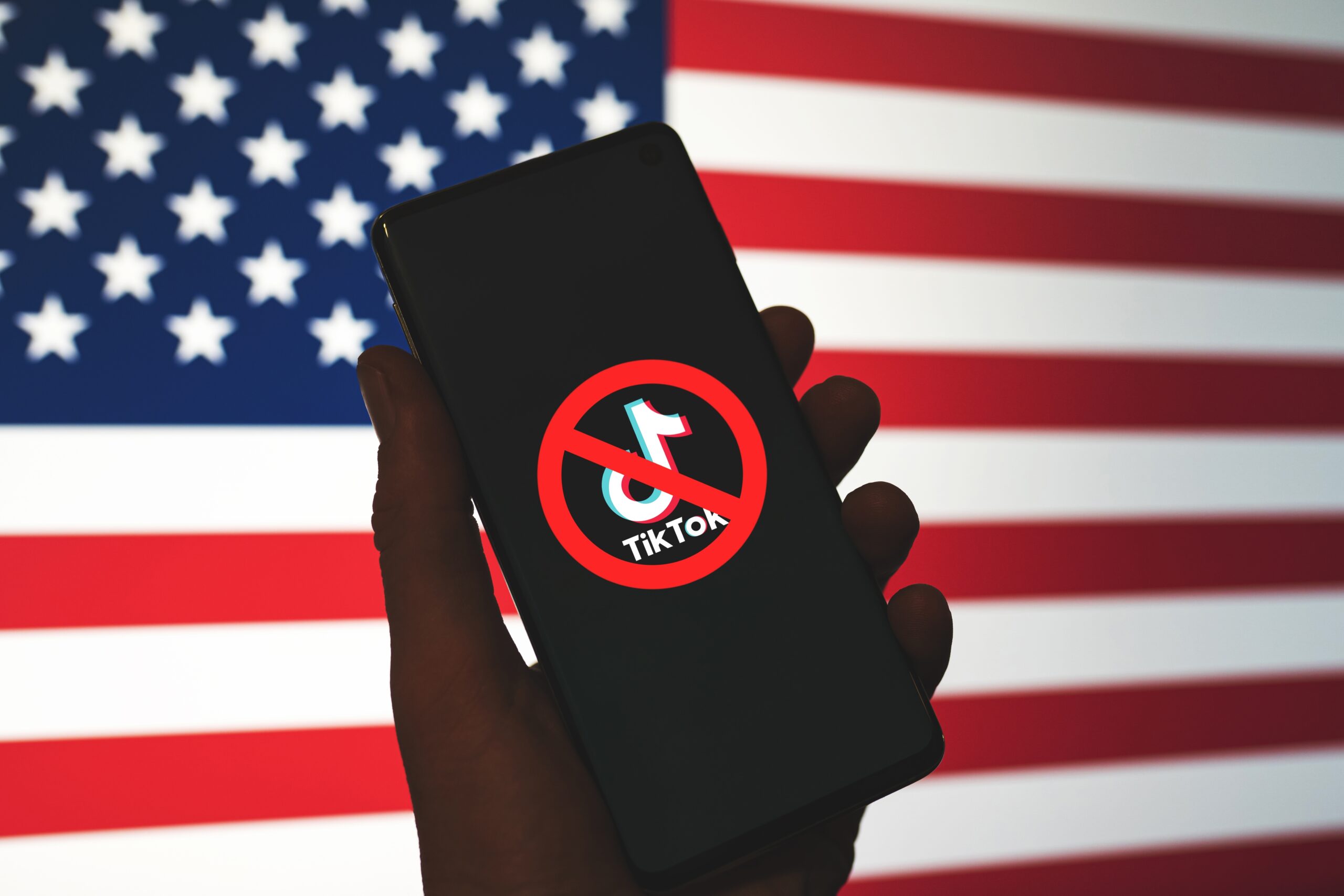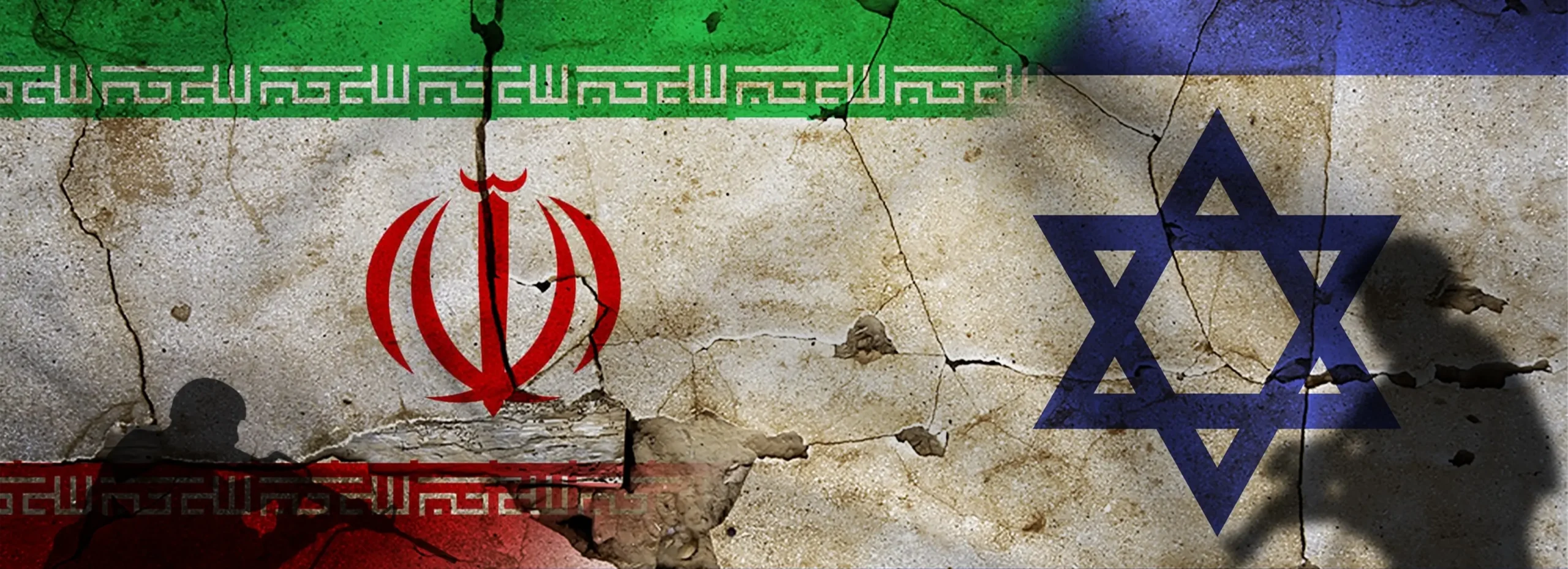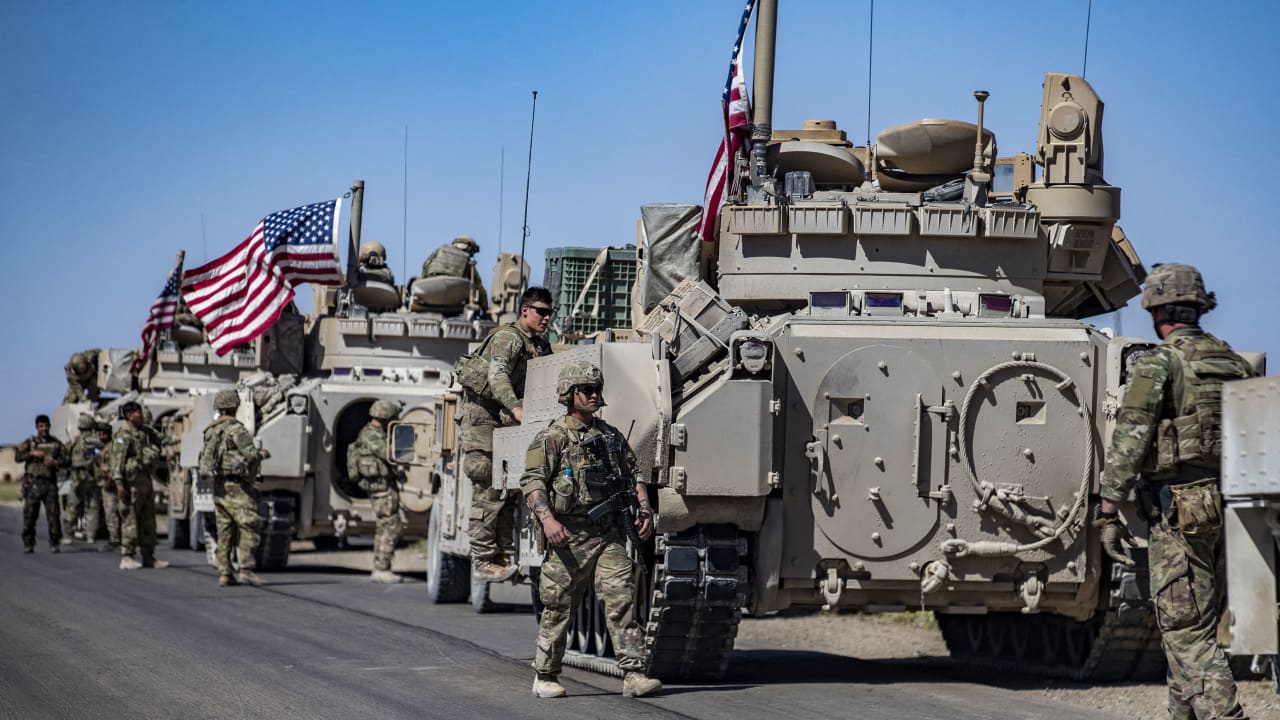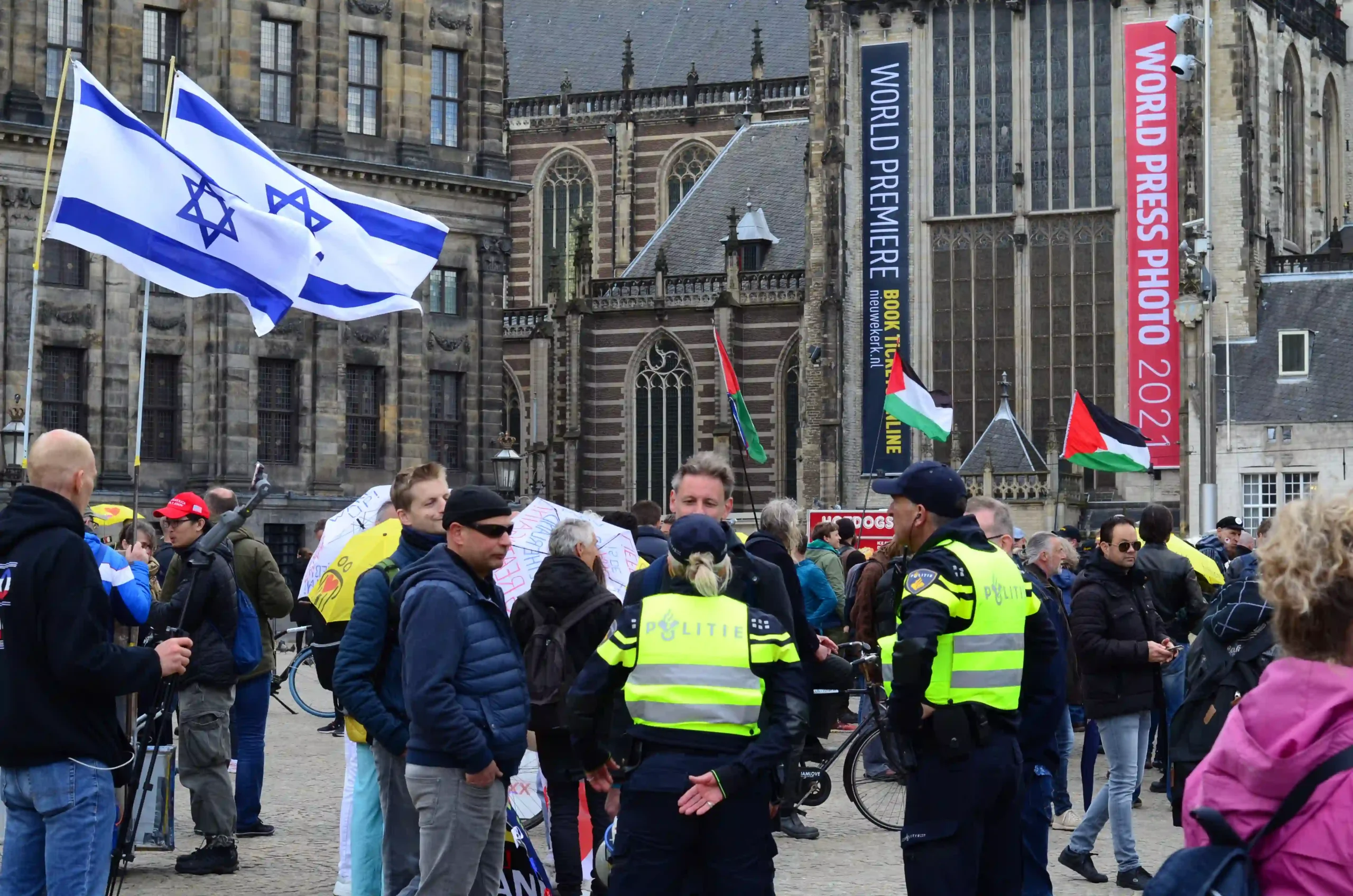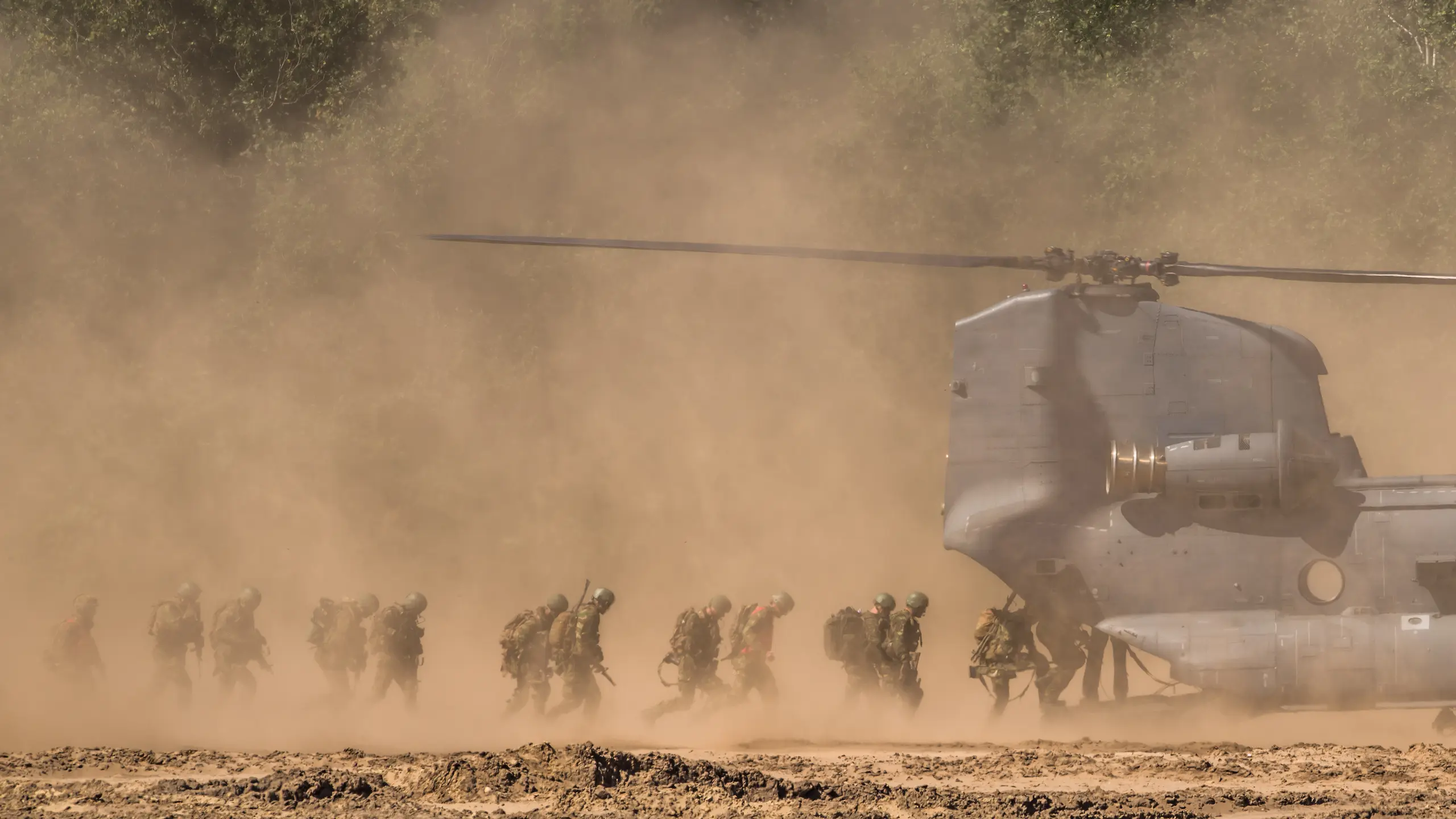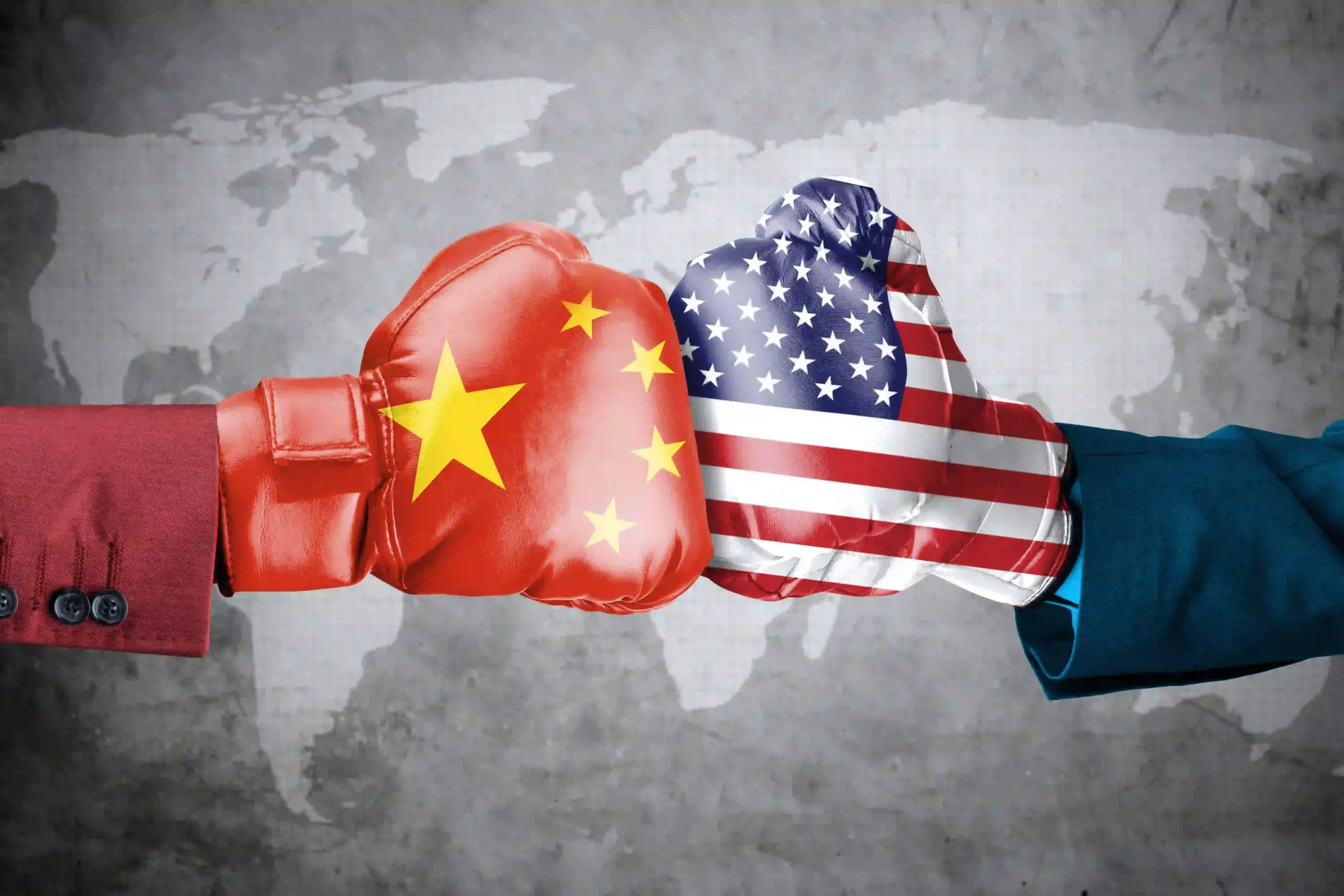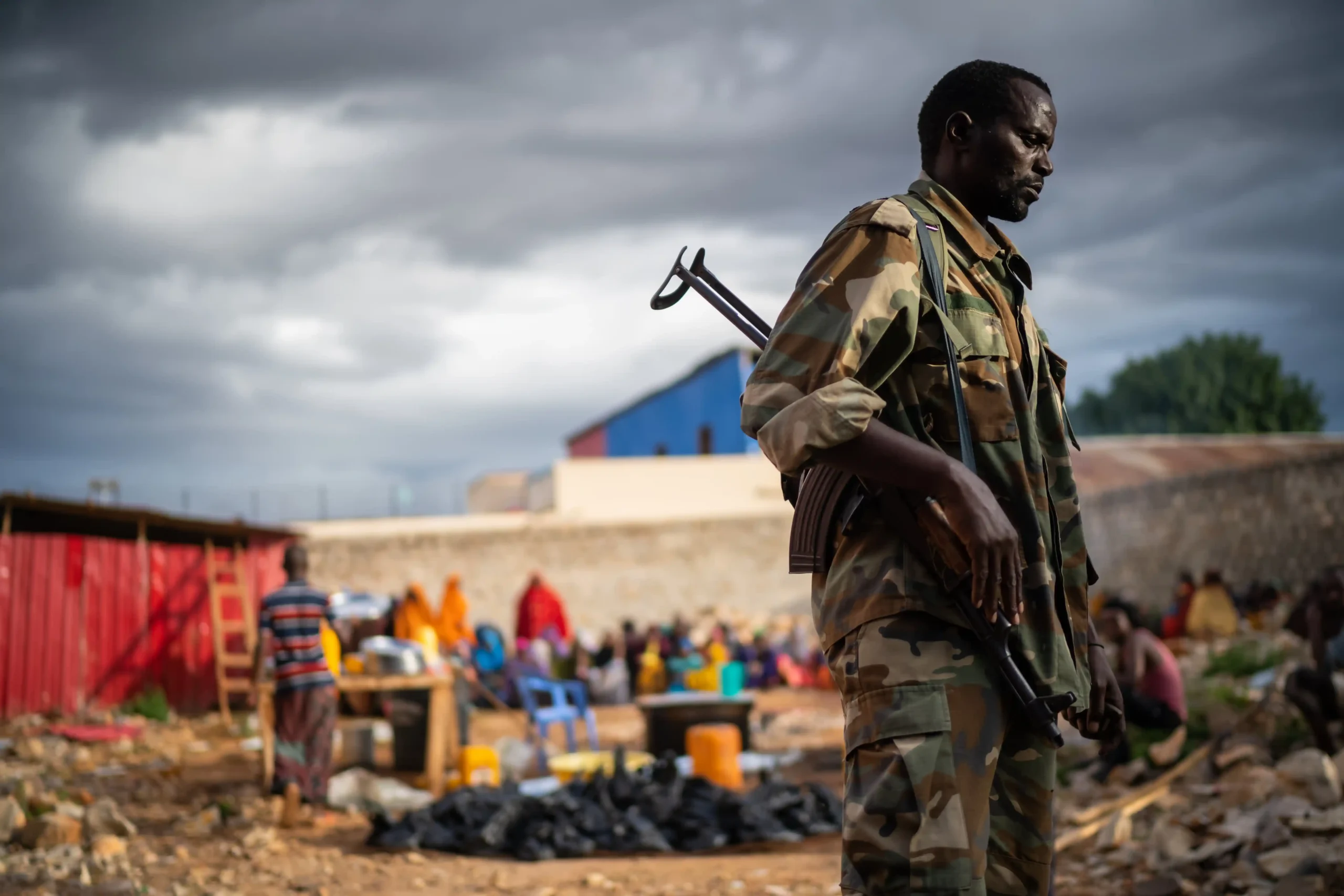22 Jul 2024
The Resurgence of Assassination as A Political Tool
Political assassinations have been a constant occurrence in world politics. Assassination as a political tool is, however, not exclusive to states nor state leaders; anyone who has fired a gun against a political figure claims the title of an assassin. Additionally, involvement in politics in any capacity can leave you vulnerable to such acts of retaliation. While gunmen and fanatics still impose a threat, states themselves are considered to be leading the pack. During the Cold War, the business of assassination was largely monopolized by superpowers. The United States and the Soviet Union directed operations targeting high-profile figures such as Cuba’s Fidel Castro, Chile’s Salvador Allende, and Yugoslavia’s Josip Broz Tito. Some "hits" gained more fame than others such as the assassination of dissident Bolshevik leader Leon Trotsky in Mexico City using an ice pick by Stalin’s secret police.
Russia and the United States, once the dominant global poles, continue to hold on to their old love for eliminating those they deem adversaries. The Kremlin has a long tradition, stretching back a century, of eliminating political dissidents both at home and abroad to send chilling messages to other opponents. In February 2024, a Russian pilot who had defected to Ukraine was assassinated in Spain. He was shot six times and then run over by a car, with Russian-made bullet casings left at the scene—a crude warning to others. Recently, U.S. intelligence uncovered a Russian plot to assassinate the chief executive of a powerful German arms manufacturer producing artillery shells and military vehicles for Ukraine. The United States has also continued its practice of carrying out high-profile assassinations with its most recent target being Qassem Soleimani, who was killed in Baghdad in a strike that showed little regard for international law.
States vary in their levels of expertise in assassination, with Israel often considered the maestro of this practice. Assassination has been a foundational principle of the Israeli state. Since its establishment in 1948, Israel has targeted Nazi leaders, Palestinians, Arabs, and scientists serving its enemies, such as German scientists working on the then Egyptian President Gamal Abdel Nasser’s advanced weapons program. Currently, the pool of targets has expanded, with Iranians becoming significant targets of Israeli operations. One of the latest operations against Iranians involved the assassination of Hassan Sayyad Khodaei. Known only to intelligence personnel as a key figure at the tactical level in the Quds Force, Khodaei's primary focus was on attempting (mostly unsuccessfully) to attack Jewish and Israeli targets abroad.
Nevertheless, the pool of nations engaged in assassination attempts appears to be expanding with new entrants. A notable incident occurred in Canada last June, where Sikh separatist Hardeep Singh Nijjar was shot 34 times. Additionally, in January of the same year, British Sikhs were warned by police about increased risks to their lives. This incident marks India’s grand entrance into the stage of those countries using assassination as a tool for advancing both international and domestic agendas. It highlights how political assassinations have resurfaced as a widespread tactic, no longer monopolized by a handful of states.
21 Jul 2024
The Power of the Word: How the UAE Redefined International Mediation?
The 21st century has witnessed a resurgence of mediation as a pivotal tool for resolving international disputes. This resurgence is driven by the complexities of contemporary conflicts and the expansion of threats beyond traditional regional conflicts, civil wars, and political crises. The scope of security threats now includes issues such as climate change, cybersecurity, and transnational organised crime.
Several countries have played significant roles in mediation, leveraging their diplomatic acumen, political influence, and economic resources to facilitate dialogue and prevent escalation. Norway has consistently demonstrated its commitment to peacebuilding through active participation in resolving conflicts among the most prominent mediators. From Sri Lanka to Colombia and the facilitation of the Oslo Accords, Norway has embodied its ability to promote dialogue between seemingly irreconcilable adversaries.
Known for its multilateral approach and emphasis on consensus building, Finland initiated the Group of Friends of Mediation in September 2010, significantly contributing to peace processes in the Horn of Africa. Similarly, Switzerland, with its long-standing tradition of neutrality, has provided a safe and neutral venue for countless peace talks and negotiations, fostering an environment conducive to compromise and resolution.
Amid the resurgence of mediation in international diplomacy, the last decade has witnessed the emergence of non-Western actors in this field. At the forefront is the United Arab Emirates (UAE), which has become an essential player in the Middle East and beyond. Since its founding, the UAE has combined traditional Arab values with modern diplomatic practices to address the cultural complexities of regional conflicts, adopting a policy of promoting peace, security, and stability both regionally and globally.
The UAE’s commitment to mediation is evident in its numerous initiatives aimed at calming conflicts and crises, including active mediation in the ongoing conflict in Yemen, facilitating dialogue and humanitarian aid, playing a crucial role in reconciliation efforts between India and Pakistan; its pivotal role in the historic 2018 peace agreement between Ethiopia and Eritrea, marking a significant achievement in regional stability; facilitating prisoner exchanges between Russia and Ukraine, showcasing the UAE's diplomatic reach; mediation efforts between Russia and the United States (U.S.), further highlighting the UAE's influence; and hosting the COP28 Climate Conference in Dubai, underscoring the UAE's active participation in global diplomacy.
However, the path to mediation is fraught with challenges. The inherent complexities of many regional conflicts, the conflicting interests of the parties involved, and the need to balance mediation efforts with national interests can hinder the achievement of sustainable solutions. Additionally, maintaining neutrality in polarised situations, limited influence over non-state actors, and potential capacity constraints are challenges that the UAE must overcome to ensure the continued success of its mediation efforts. Hence, the UAE’s role as a rising international mediator, focusing on the factors that enabled its rise, its mediation strategies, and the impact of its efforts on regional and global conflicts will be examined.
27 Jun 2024
Iran’s Presidential Election: Intense Competition and High Stakes
Iranians are voting in a snap presidential election on June 28, following the sudden death of President Ebrahim Raisi in a helicopter crash in May. This situation is not unprecedented for the Iranian regime, which has faced similar scenarios. In 1981, Iran’s first president following the Islamic Revolution Abolhassan Banisadr, was removed from office by the Islamic Consultative Assembly for political incompetence. Later that year, his successor, President Mohammad-Ali Rajai, was killed in a suitcase bombing. Thus, the current political and constitutional vacuum is not new to Iran. This pattern of instability has occurred twice before during significant periods of political upheaval.
Ebrahim Raisi was one of the few figures who enjoyed the trust of the security establishment and the regime's cleric guards. He was expected to oversee the rise of a new supreme leader after the death of Ali Khamenei or perhaps become the supreme leader himself. Therefore, Raisi's death poses a significant challenge to the mullahs' regime, especially given the internal and external challenges that Iran has faced recently.
On the other hand, Iran’s Supreme Leader Ali Khamenei paved the way for the presidential elections by selecting only six candidates who passed the examination conducted by the Guardian Council. This council, comprising 12 clerics appointed by the Supreme Leader, nominated by the judiciary chief, and approved by parliament, filtered the candidates based on loose criteria that it interprets and explains. Out of 80 candidates who applied for the position, only these six were allowed to run, with the Guardian Council having the final say in choosing or excluding candidates.
For instance, while the Iranian Constitution does not explicitly bar women from running for president, the Guardian Council effectively prevents them from doing so. Despite four women registering candidacies in the current and past 13 presidential elections, none have been approved.
Article 115 of Iran’s Constitution requires the president to be “a politician and cleric of Iranian origin, an Iranian citizen, a director and a wise man, who enjoys a good reputation, honesty, and piety, and believes in the foundations of the Islamic Republic of Iran and the official religion of the country.” Additionally, criteria related to administrative capabilities are considered. Beyond these criteria, it is widely believed that Khamenei favours a loyal and conservative president who aligns with his views and adheres to the principles of the regime, including obedience to the Supreme Leader.
Therefore, this analysis aims to clarify the significance of these elections, the management process, and the priorities that voters and the regime seek in the next president.
22 Apr 2024
The War on TikTok: Security Concerns and Anti-Semitism
Social media has played a pivotal role in reshaping the narratives of the Palestinian-Israeli conflict since the outbreak of Oct. 7. The dissemination of news and information now extends far beyond traditional media outlets. Instead, social media platforms have emerged as potent influencers, surpassing the resonance of weapons and delineating a global divide between Israel and Palestine. These platforms have become arenas of contention, with users segregating into supporters and opponents, rendering them susceptible to content-related pressures amid the war. The war on Gaza has once again thrust TikTok into a heated discourse regarding the application's dangers and impact as a global forum for ordinary individuals to voice their opinions while also serving as a battleground for political factions to vie for narrative control. This debate assumes added significance as the audience of traditional news outlets continues to dwindle.
Recently, numerous TikTok videos concerning the war on Gaza garnered widespread attention, accompanied by pro-Palestinian hashtags, prompting Israeli President Isaac Herzog to engage in discussions with TikTok executives in February 2024. Expressing apprehension over the surge in antisemitic content on the platform since the onset of the Israeli war on Gaza, they assured President Herzog of their commitment to address the issue in the future. In a related context, social media companies based in the United States have already demonstrated a readiness to censor pro-Palestinian content. Human Rights Watch, in its December 2023 report, documented over 1,050 instances of content removal and suppression on Instagram and Facebook by Palestinians and their supporters between October and November 2023.
In this context, U.S. legislators, conservative activists, and technology investors have voiced calls to ban TikTok in the U.S., citing escalating concerns. These calls gained significant traction on March 13, 2024, when the U.S. House of Representatives overwhelmingly voted in favour of a bill. The bill places ByteDance, the parent company of TikTok, with two options, both fraught with implications: either sell the application to a U.S.-based company or confront a ban on distribution through significant platforms and application stores. President Joseph Biden voiced his backing for the bill and signalled his readiness to sign it into law pending Senate approval. However, the U.S. initiative this time brings forth broader concerns beyond national security, encompassing the application's ramifications on Israel's reputation. The country's standing has been damaged due to the swift dissemination of content depicting Israel's crimes against civilians in the Gaza Strip.
This analysis aims to elucidate the reasons behind the shift in the U.S. perspective on TikTok, moving from security concerns to the perception of promoting antisemitism. What repercussions would the embargo have on both the United States and Israel?
17 Apr 2024
The Fallout of Escalating Iranian-Israeli Tensions
The Iranian Revolutionary Guard's Air Force made a historic move by launching a direct assault on Israel in an operation dubbed "The True Promise," marking the first instance of such an attack originating from Iranian territory. Late on Saturday, April 13, 2024, Israeli cities were subjected to a relentless barrage of drones and ballistic missiles, signalling a significant escalation in tensions between the two nations. This offensive action follows Iran's earlier pledge to retaliate against Israel for its targeting of the Iranian consulate in Damascus, an incident that resulted in the deaths of seven Revolutionary Guard members, including two high-ranking leaders, on April 1.
This calculated escalation underscores Iran's unwavering commitment to defending its sovereignty and national interests while bolstering regional security. The global spotlight now shifts to the scale, sophistication, and broader implications of Iran's strike against Israel.
The Iranian assault on Israeli soil marks a pivotal moment in the ongoing conflict between the two adversaries, thrusting their hostilities from the shadows into the open arena of direct confrontation.
Against this backdrop, the Israeli response hinges on several key factors. Firstly, the extent to which Iranian proxies, such as the Houthis and Hezbollah, may actively participate in the conflict will influence Israel's strategic calculus. Secondly, the response will be shaped by the presence or absence of casualties among Israeli forces, as well as the effectiveness of its defence systems, bolstered by support from the United States, in mitigating potential damage. Lastly, how Israel opts to retaliate will be of paramount importance in determining the trajectory of the conflict.
Consequently, this analysis aims to elucidate the attack's ramifications and its economic repercussions on the parties involved in the conflict.
3 Mar 2024
What if the U.S. Ceased Providing Military Aid to Israel?
A recent statement from the European Union Foreign Policy Commissioner, Josep Borrell, urging Israel's allies, notably Washington, to cease supplying weapons to Israel has ignited widespread controversy. This call comes amid heightened concerns over the significant civilian deaths in the Gaza Strip. Coinciding with this plea, a Dutch appeals court decision has prohibited the export of all spare parts for F-35 fighter jets destined for Israel. These developments unfold against the backdrop of Israel's plans to initiate an expanded military operation in Rafah. Such an operation raises the spectre of a potential humanitarian catastrophe, particularly concerning the over 1.3 million displaced individuals from the Gaza Strip who have sought refuge in Rafah since the commencement of military activities in the enclave.
The United States provides Israel with annual military aid worth $3.8 billion, which stands as one of the most substantial military aid packages supplied by the U.S. to any country globally. This commitment was reaffirmed by U.S. officials, including President Joseph Biden, who, during his tenure as Vice President under Barack Obama, emphasised the enduring strategic alliance between the two countries. Then Vice President Biden said the U.S. commitment to Israel transcends moral obligations and is a deeply rooted strategic obligation. During a visit to Tel Aviv amid the events of Oct. 7, he underscored that “the existence of an independent and secure Israel within globally recognised borders aligns with the practical strategic interests of the United States.” He further emphasised, “I have long said: If Israel didn't exist, we would have to invent it.” Evidence of the depth of relations and continued support is further demonstrated by Congress' approval of an additional $14.1 billion in military aid to Israel. This aid is intended to bolster Israel's capabilities in its conflict with the Hamas movement, specifically by providing air and missile defence support and replenishing U.S. military stock granted to Israel. This level of support echoes the assistance provided by the United States to Israel during the October 1973 War with the Egyptian Army.
The generous and unconditional support provided by the U.S. to Israel prompts numerous inquiries, particularly in the context of the U.S.'s inability to exert pressure on Israel to stop its war on Gaza. Additionally, its loss of control over the right-wing government's decision-making process regarding the potential expansion of the war to include Rafah, portending an imminent conflict with Egypt. Hence, this analysis endeavours to address a pivotal question: Will these developments prompt a shift in the U.S. stance toward Prime Minister Benjamin Netanyahu and his right-wing government, potentially leading to a withdrawal from the notion of an expanded operation in Rafah? Furthermore, can the United States feasibly cease its military aid to this strategic ally in the Middle East?
30 Jan 2024
The Vicious Cycle of Violence: Next Steps Post-Jordan Attack
On Jan. 28, 2024, a significant drone strike occurred at an American military outpost situated along the Jordanian-Syrian border. The targeted attack led to the death of three American troops, with 34 additional personnel sustaining injuries, as reported in the latest statement released on Jan. 30, 2024.
This event holds profound implications and is poised to instigate repercussions that warrant careful analysis and monitoring. Notably, it marks the first instance of American service members being killed by hostile fire in the Middle East since the commencement of the Israel-Hamas War. The attack's location and timing carry additional connotations, underscoring the need to anticipate and evaluate the potential developments that may occur.
Moreover, the Islamic Resistance in Iraq (IRI) claimed responsibility for the attack in a statement, explicitly stating, “We targeted four enemy bases, including three situated in Syria: Al-Shaddadi base, Al-Rukban base, and Al-Tanf base (located near the Syrian-Jordanian border). The fourth targeted base is within the occupied Palestinian territories, identified as the Zevulun Naval Facility.”
30 Nov 2023
An Open Letter to COP28
Dear leaders, negotiators, and decision makers,
This year, "Unite-Act-Deliver" is the slogan of COP28, a pivotal event in the international endeavour to combat climate change. The increasing number of climate disasters in 2023, wherein severe weather phenomena have wreaked devastation on a global scale, shows the urgency of the need to act. The United States, Hong Kong, Greece, Libya, Turkey, Bulgaria, Spain, Taiwan, Pakistan and China were all affected by hurricanes, storms, droughts, and flooding. The floods that struck Libya and Pakistan were particularly devastating, resulting in substantial destruction of infrastructure and loss of life, and increasing sea levels and heat surges that have been felt globally have also occurred.
Furthermore, the adverse effects of climate change on food and water security on a global scale have impeded progress towards attaining the Sustainable Development Goals. In particular, food systems are accountable for one-third of worldwide green gas emissions and have slowed agricultural productivity for the past five years which entails the transformation of food systems to achieve net-zero emissions.
30 Nov 2023
The West Polarised: Impact of the War in Gaza
Ramifications of the Israeli-Hamas War have not been confined within Gaza or the Middle East’s borders. Polarisation over the Palestinian cause has reached a new character especially in the Western world where such a trend has never been as deep. Cracks within governments and societies can be traced to a volatility of values, exposure to social media, and demographic changes. With such an unprecedented divide over Western governments tolerating Israeli impunity in Gaza, the West is faced with a moral dilemma which might cost it it’s claimed “moral superiority”.
18 Oct 2023
Hannibal Protocol: Will Israel Burn Hamas’s Leverage?
The emergency government of Israel has taken decisive steps, announcing its intent to declare war and initiate comprehensive ground invasion preparations in response to the recent incursion by Palestinian factions on October 7, 2023. This incursion targeted over 20 locations surrounding the Gaza envelope. It resulted in the capture of numerous Israeli soldiers and officers stationed along the front lines in the Gaza Strip's secure zones. The present prisoner crisis is one of the most severe episodes in the long history of confrontations between Israel and Palestinian factions.
31 May 2023
Great Power Competition and Rebalancing Acts in the Middle East
Many analysts argue that Washington is losing its position as the only global hegemon with the rise of other Great Powers in the international arena. The relative demise of the American superpower paves the way for the end of an exceptional era of a Uni-Polar system and the rise of either a Bi-Polar or a Multi-Polar one. Arguments usually revolve around the rise of Russia and China as the main rivals to the United States. However, in this analysis, we argue that the Russian side is better to avoid being considered for such a competition for being involved in a hectic war which requires a sweeping victory for Moscow to compensate for heavy economic losses. China, on the other hand, is gaining momentum on the diplomatic and, to a lesser extent, the security front as new territories for Beijing ever to set foot on. Nevertheless, it is also the case that Washington is still maintaining its supremacy in major arms sales. The Middle East proved to be of paramount importance in the competition among great powers. With Beijing, Washington, and even Moscow trying to gain some influence, countries of the region have been shifting their foreign policies to be more independent to maximise benefits from the newly established world order. Accordingly, they are playing the rebalancing game which stipulates balancing powers mainly between the United States and China.
30 May 2023
Somalia’s Gamble on American Intervention
A humanitarian crisis is unfolding in Somalia after flash floods have displaced over 200,000 people, exacerbating the country’s ongoing struggle with mass starvation, water scarcity and terrorism. For over a decade, jihadi organisation al-Shabaab has carried out attacks and terrorised civilians, both in Somalia and neighbouring countries including Kenya and Ethiopia, prompting extensive counterterrorism offensives by the Somali government with support from numerous international actors including the US, UK, EU, Eritrea, and Turkey. Not surprisingly, the US holds one of the largest shares in security assistance (and peacekeeping operations) funding to Somalia, amounting to around $3 billion in the last decade. Where insurgency goes, the American military follows, but to what effect? If there were ever doubts about the long-term effectiveness of American military intervention, the Taliban’s takeover in Afghanistan in 2021 certainly solidified their validity. Though the intervention in Somalia can be considered low profile relative to other American adventures, that might be a cause for more concern. In the wake of recent developments, the question of if Somalia will be the next Afghanistan emerges once again.



